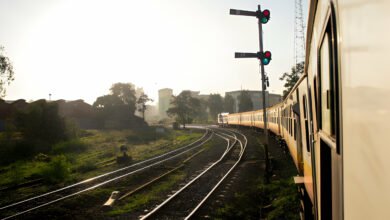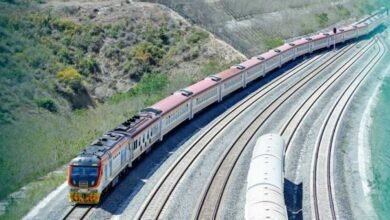
The Kenyan government has been ordered to make the 605km long Standard Gauge Railway (SGR) contract public to Kenyans.
This follows a landmark ruling delivered by High Court in Mombasa.
Jubilee administration chaired by President Uhuru Kenyatta contracted China Road and Bridge Corporation (CRBC) in December 2014 as the main contractor after he won the election in 2013.
The railway line opened in 2017 and it cost whooping Ksh.327 billion – from Mombasa to Nairobi.
About 90 percent of the cost of the project was met by the Exim Bank of China, in the form of two Ksh.185.9 billion loans.
Friday ruling comes even after the state objected to the move saying unveiling the document to the public might threaten the security of the nation.
The court ruled that the Governemnt provided insufficient evidence to merit the argument that the contract between Kenya and the Chinese government was of national security concern and thus could not be disclosed.
“The court makes a declaration that failure to disclose information in letter of December 16, 2019, violates Article 35(1) and (3) and Article 10 of the constitution,” read the court documents.
Petition number E032 of 2021 which was made Khelef Khalifa and Anor sought to have details of the contract made public was made by
They argued the contract should be made public in line with the Access to Information Act.
Enacted on 21 September 2016, the Access to Information Act gave life to Article 35 of the Constitution of Kenya 2010, which guarantees every Kenyan the right to seek access and obtain information from public bodies and private bodies acting in a public nature.
However, Transport Principal Secretary Joseph Njoroge argued the SGR contract Kenya agreed with China was a non-disclosure agreement.
“Upon receipt of the request for information from the petitioners ( Wanjiru Gikonyo and Khelef Khalifa) Kenya Railways Corporation responded and explained that the contracts of the projects to which information is being requested are between the governments of the People’s Republic of China and the Government of Kenya,” he stated.
Earlier Landmark Rulings
In 2020, the Court of Appeals found that the Ksh.327 billion contract was illegal.
The case was dismissed by the High Court that same year, but in June 2020, the appellate judges ruled that the SGR procurement process breached Article 227 of the Kenyan Constitution, as it was not open to a public tender, and so was not “fair, equitable, transparent, competitive and cost-effective”.
About 90 percent of the cost of the project was met by the Exim Bank of China, in the form of two Ksh.185.9 billion loans.
Exim made the loans conditional on the appointment of a Chinese contractor to build and operate the line, meaning it could not go to a public tender.
The first part of the second phase, a 120km link between Nairobi to Naivasha, was finished in October 2019. It cost a whooping Ksh.150 billion.
The extension to Malaba will now take the form of upgrading an existing metre-gauge line. This will not be carried out by a Chinese contractor.
In March this year, China surrendered to Kenya some of the SGR functions it has been managing since 2017.
The functions include loading and offloading of the SGR passenger and cargo trains to Kenya Railways Corporation (KRC).
Kenya Railways was only tasked with handling ticketing, security, and fueling functions that were handed to it in March 2021.
“The corporation (Kenya Railway) has now assumed the loading and offloading functions from Africa Star Railway Operation Company, and in terms of percentages, we can say that we are now at 60 percent,” said KRC Managing Director, Philip Mainga.
KRC entered a deal with AfriStar, a subsidiary of CRBC in 2017 to help Kenya manage the multi-billion project.
According to the contract, AfriStar has the right to manage the ticketing system and software and hardware functions of the SGR.
President Kenyatta made the deal with China to take over some of the SGR functions by May this year.





